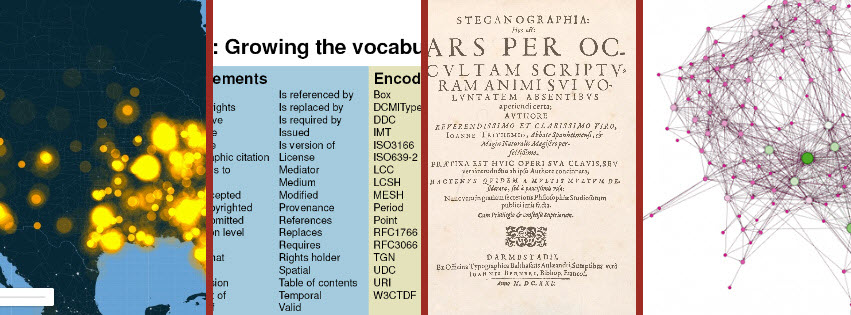The phrase “Digital Humanities” refers to a broad set of practices that augment the traditional scholarly work of the humanities with software-assisted methods. While some of these methods have been employed by academic researchers for decades, a recent flurry of funding and research projects has led to the emergence of a more coherent field that uses software to help us rethink the way the humanities are researched and taught. Text mining, annotated maps and timelines, data visualizations, and 3D modeling are among the many methods used by digital humanists.

Digital Humanities at Puget Sound
Backed by an Andrew W. Mellon Foundation grant, the Digital Humanities program at the University of Puget Sound is designed to bring these innovative practices to our liberal arts setting. The program seeks to advance the use of digital methods in pedagogy, spur original research projects, and increase the digital literacy of the university’s faculty, staff, and students. Scholars and students in the humanities and social sciences work alongside educational technologists and librarians to explore, question, build, and discover meaning through the application of digital methods.
Departments and individual faculty members can contact team members and set up general information sessions on Digital Humanities or specific tutorials that focus on individual methodologies or tools. In addition, the program also supports the creation of original digital projects that are centered on undergraduate research and local initiatives. Get started today!